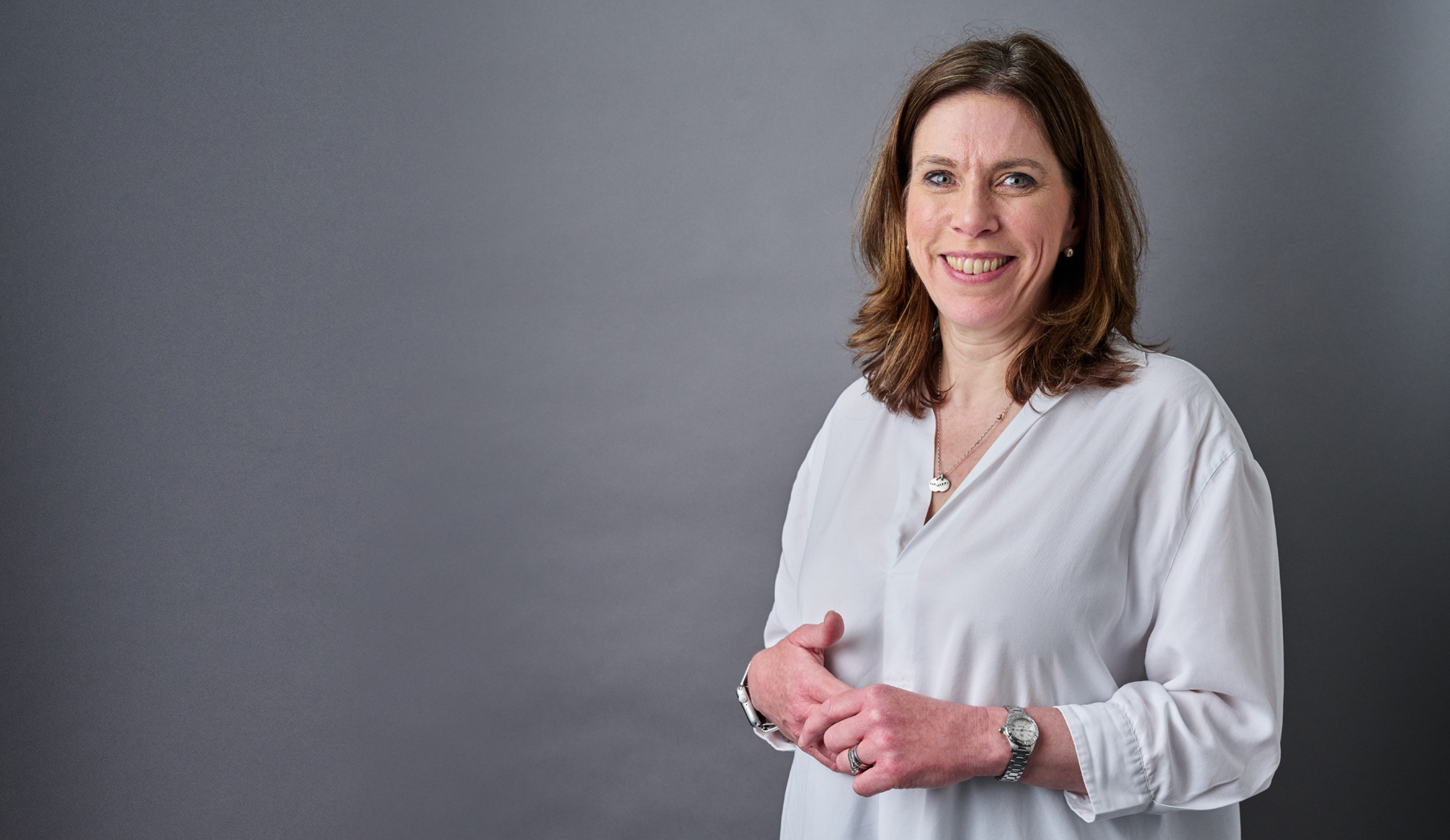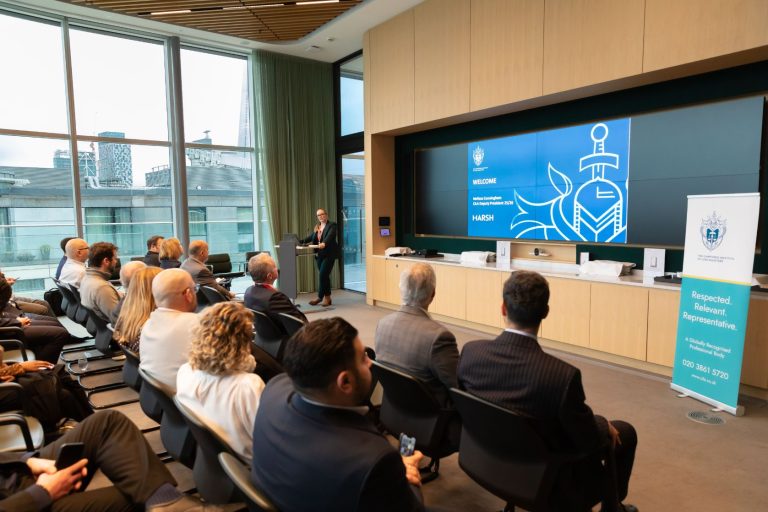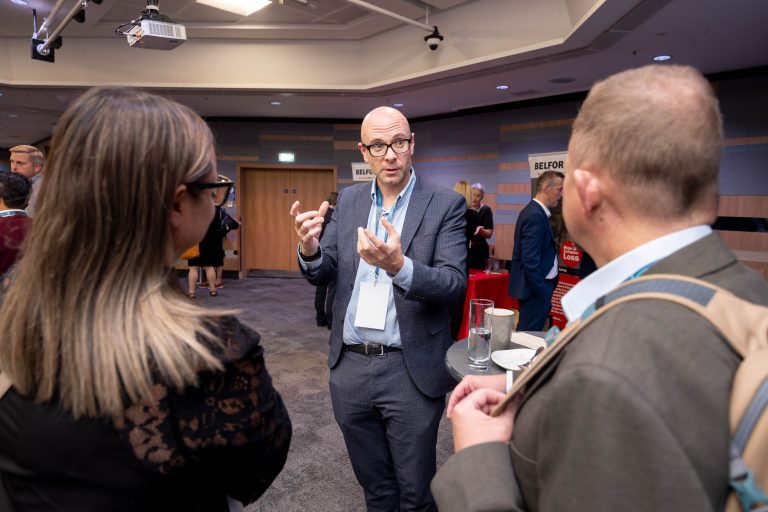MeetHelena
Managing Director
Criterion Adjusters

Having started in insurance as a claims handler after finishing her A-Levels, Helena moved to loss adjusting in 1991, including some time working in Antigua following a hurricane. She took a career break in 1998 to raise a family, before returning to loss adjusting in 2010, where she has since taken on a series of increasingly senior roles.
Helena’s views on the ‘people’ side of loss adjusting:
“I often think we’re a bit like the emergency services. Of course, the actual role is very different, but on a big claim you might be turning up because someone’s house has burnt down, and they’re in a highly emotional state. They don’t know what to do and are worried about everything. Initially you’ve got the challenge of how you deal with that customer – and as everyone is different, you have to work it out quickly, and build a relationship of trust. You know there’s a light at the end of the tunnel, and I like working with them making that happen, to assist in getting their life back together. That’s the rewarding part of our job, helping people.”
You know there’s a light at the end of the tunnel, and I like working with them making that happen, to assist in getting their life back together.
…on the investigative nature of the role:
“When I first started in claims, we would instruct loss adjusters and read their reports, and I’d always think ‘that looks interesting’. Because, as a loss adjuster, you’re not only going out to someone’s house or business and meeting the people, but you’re also investigating things. You might appear to be asking one question, but at the same time you’re gathering lots of information just by looking around you, watching their body language, assessing their lifestyle, or checking there’s not a fraud element somewhere. Your brain is in overdrive taking everything in, and I quite like that side of it. You need to be a good listener, and observant, and take your time making decisions. Those are all good skills for this job.”
You need to be a good listener, and observant, and take your time making decisions. Those are all good skills for this job.”
…on what a Head of Specialist Services does:
“With a managerial element to my role, I have a reduced caseload. I tend to deal with the more-complex claims, vulnerable customers, major losses, or claims given to us by insurers that need getting back on track. Outside of case work, I oversee some accounts with insurers, ensuring they get good service, and I’m in the firm’s senior leadership team.”
…on the importance of qualifications:
“It was the professional and highly respected nature of the work that attracted me to the job. However, I do remember when I was younger, before there was today’s understanding of diversity and inclusion, females would often be challenged about decisions made, with customers suggesting a male colleague should take over. Or people would assume I was a member of the office staff arranging the appointment for the adjuster. So once I had some qualifications after my name it was actually very important, as this was a way of showing to a customer that I did know what I was talking about. From an employer point of view, qualifications show your commitment to the profession, and firms showcase the number of qualified adjusters they have when pitching for new business with insurers. In addition, I’ve had several promotions since qualifying. And now I’m in a managerial role, I get drawn into complaints and queries, and so the understanding of the technical side of things I gained from my exams is very important. So, my advice would be to study for the exams early on. Never think you’re too busy, you can always make the time.”
When work is finished for the day, Helena enjoys photography, loves Cornwall, and wants to buy a motorhome when her three teens have flown the nest.
From an employer point of view, qualifications show your commitment to the profession, and firms showcase the number of qualified adjusters they have when pitching for new business with insurers.
Section headline
Accordian Section
The CILA Anti Fraud SIG committee brings together a group of experienced members whose core activity is the consideration and investigation of potentially fraudulent claims. In addition to providing CILA members with technical material on fraud matters, the group also actively contributes to insurance industry discussions and anti fraud initatives by sharing their extensive, first hand knowledge and experience of fraud investigation.
Accordian Section
The CILA Anti Fraud SIG committee brings together a group of experienced members whose core activity is the consideration and investigation of potentially fraudulent claims. In addition to providing CILA members with technical material on fraud matters, the group also actively contributes to insurance industry discussions and anti fraud initatives by sharing their extensive, first hand knowledge and experience of fraud investigation.
Accordian Section
The CILA Anti Fraud SIG committee brings together a group of experienced members whose core activity is the consideration and investigation of potentially fraudulent claims. In addition to providing CILA members with technical material on fraud matters, the group also actively contributes to insurance industry discussions and anti fraud initatives by sharing their extensive, first hand knowledge and experience of fraud investigation.

”The CILA Diploma qualification has really helped me to develop my technical knowledge and skill in claims handling. The qualification has formed a firm grounding for a future successful career in the loss adjusting profession.”
Downloads
Latest News

Preparing for the Future: CILA Launches Cyber & Technology Special Interest Group

Join us: Construction, Energy and Engineering Special Interest Group

